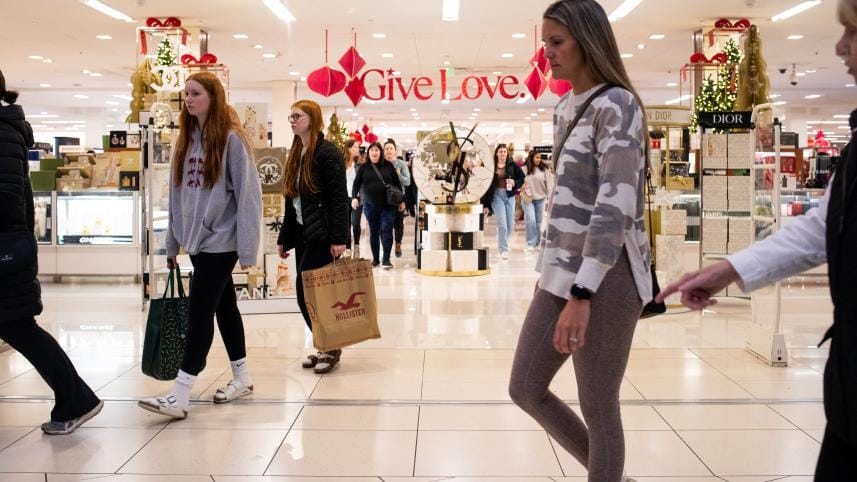US consumer confidence plunges again in March: study

Consumer confidence in the United States declined sharply again in March, falling more than analysts had expected, according to a study Friday that cited economic turbulence now that Donald Trump is back in power.
An index measuring consumer confidence compiled by the University of Michigan fell to 57.9 in March, down from 64.7 a month earlier, weighed down by the seeming chaos of Trump's tariff policy and fears of high inflation.
That marked a drop of 10.5 percent in the index in one month and 27.1 percent over the past year.
Analysts had expected a smaller decline, to 63.2, according to a survey published by MarketWatch.
"While current economic conditions were little changed, expectations for the future deteriorated across multiple facets of the economy, including personal finances, labor markets, inflation, business conditions, and stock markets," the University of Michigan said in a statement accompanying the survey.
"Many consumers cited the high level of uncertainty around policy and other economic factors," it added.
The statement said, "frequent gyrations in economic policies make it very difficult for consumers to plan for the future, regardless of one's policy preferences."
The University of Michigan index for February, which also dropped sharply, was like a bucket of cold water for financial markets because the sentiment and spending habits of Americans largely determine the health of the US economy.
Art Hogan, an analyst with Riley Wealth Management, said uncertainty has been mounting since Trump launched trade wars against allies and competitors alike, adding that "announcements have been haphazardly coming out."
"There is very little surprise that sentiment is receding," Hogan told AFP.
"Generally, ups and downs in measures such as consumer confidence and consumer sentiment don't reflect actual purchasing, but the drastic drops in both recently, combined with other factors, point to a likely slowdown in spending," Robert Frick, an economist with Navy Federal Credit Union, said in a note.
"This is bad news. People who fear losing jobs pull back on discretionary spending," said Bill Adams, chief economist at Comerica bank.
"People who are afraid the economy is headed into a ditch won't buy new cars or houses, go out to eat, or go on vacations," he added.



 For all latest news, follow The Daily Star's Google News channel.
For all latest news, follow The Daily Star's Google News channel.
Comments